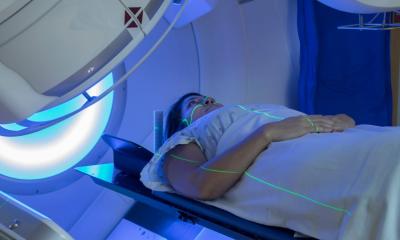Problems piling up
Rostislav Kuklik reports from the Czech Republic
Everyone (even if only marginally interested in public affairs) must have noted the current astronomic, worldwide public debts -- including the USA’s astounding $12 trillion. Additionally, everyone probably noted that, in many cases, this had something to do with the healthcare sectors.
President Obama, for example, has been fighting to reform the US system because health expenditures represent 16 % of American gross domestic product (GDP) – the highest among OECD countries. Ranking second, France spends 11% of GDP on healthcare (both figures from 2007). This situation clearly cannot continue.
Smaller country, smaller problems? No. In the Czech Republic (CR) public debt reached ~€48 billion); the state budget deficit equals ~ €0.92 billion, and 6.8 % of the GDP (same as Korea) was spent on healthcare in 2007 – also extreme. Only two other OECD countries spent less: Mexico 5.9 % of GDP, and Poland 6.4 % of GDP. No matter whether spending too much, or too little, the economy must be well balanced, which is neither the case in the USA nor CR.
So far, these are just economic figures, but how do all these affect the Czech healthcare system? Deeply enough.
Apart from various ‘lesser pains’ in the Czech healthcare system, two problems dominate – the lack of money and lack of qualified professionals.
Let’s examine more figures: The Czech health insurance system is based on the Bismarck model of compulsory insurance, in which every citizen must contribute regular payments, based on actual income, to the respective health insurer (currently 11 of these in CR). As things stand, this system is disproportionate (the majority of funds are consumed by a minority of patients), rigid, and ineffective (no direct patient payments for any, even very expensive state-of-the-art, treatment are required).
The wrong financing translates into poor salary conditions – on average, in the second half of 2009, physicians earned less than ~ €20,000 and nurses went home with less than ~€920 gross. Taking this into account, no wonder interest in medical study declines year after year: 874 general medical students graduated in 2003, but only 784 of them graduated in 2009. No wonder experienced doctors, or those freshly graduated, are leaving CR en masse for a better life abroad – hundreds are lost annually, particularly to Germany, the United Kingdom, USA or Arabian countries, and Czech healthcare is becoming increasingly dependent on foreign professionals (only 829 in 2003, but over 2,000 foreign doctors worked here in 2008).
One last, but truly unbelievable example of a grim misconception that epitomises Czech ‘modern healthcare management’: 13 years have passed since the first lung transplantation and, up to now, 145 patients have been successfully operated on, yet responsible officials and health insurers have not been able (or did not want?) to agree on the insurance code used for billing purposes for this extremely demanding and difficult procedure. Lung transplantation costs about €30,000 (surgery plus ICU care) and only one surgical team (3rd Surgery Clinic at Motol Teaching Hospital) in the entire country can perform this. It is pathetic…
Sources:
stats.oecd.org; www.motol.cz ; www.mfcr.cz; www.mzcr.cz/
14.05.2010





